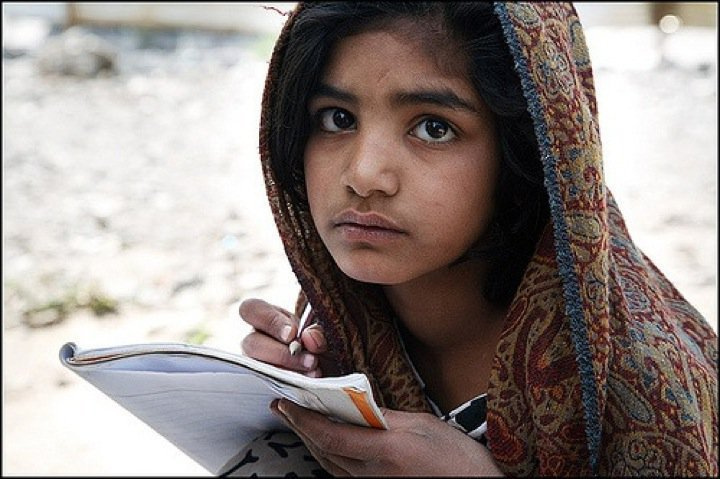Ramadan of 2018 came to a close two weeks ago and the holy month reminded me of a tragedy—a wholly preventable one—that took place during Ramadan of 2015. Three years ago about 1,000 Pakistanis died during Ramadan. They died because piety was thrust upon these impoverished day-wage workers. You see, Pakistani dictator Muhammad Zia-ul-haq passed a law in 1981 that criminalized eating or drinking in public during the month of Ramadan. This ordinance, calledEhteram-e-Ramadan, was and continues to be a blatant anti-poor and anti-women law.
Why anti-poor? Well, while the middle-class and elite can fast within the cool comfort of homes and offices with fans or air-conditioners, the destitute masses must fast while working out in the unforgiving sun. And if you have ever visited South Asia, you’ll know that in the summers, temperatures can soar to a deadly 118 degrees Fahrenheit. The construction workers, gardeners, security guards and street sweepers toiling in this sweltering heat have no respite.
Breaking this law, which indiscriminately applies to both Muslims and non-Muslims, results in a fine of 25,000 rupees (easily a yearly salary for a poor laborer) and a three-month imprisonment. To avoid these harsh punishments, many poor people risk fatal dehydration and fast. And the elite, who, prior to this law, would often place free water coolers outside their residences for day wagers and masons on their way to work, no longer provide this water.
And so, with no water to drink for miles on end (tea stalls and juice vendors disappear from the streets during Ramadan) and no shade to rest beneath on Karachi’s tree-shorn roads, nearly 1,000 people simply collapsed and died while fasting in Ramadan of 2015.
Ironically, those in power—the clerics and politicians –either flee abroad to second homes during Pakistan’s oppressive summers or lounge in lavish, air-conditioned homes where they are served prodigal amounts of food at the sunrise and sunset meal times. It seems these members of the elite have forgotten that while the Qur’an commands Muslims to fast during Ramadan, it does not insist that they do so at the risk of their health and certainly not at the risk of imminent death. After all, God is Ar-Rahman—The Compassionate One.
Sadly, compassion is not a trait you’ll find among most of the men who sit in Parliament or stand at the minbar. An NPR report quoted a cleric as saying that workers in the field and construction industries are simply making “lame excuses” about it being unbearably hot and their indolence doesn’t exempt them from having to fast. “This is laziness. According to Islam, if they are Muslim, they should be fasting.”
Unsurprisingly, another enormous segment of the population disproportionately hurt by this law are women. Firstly, women who are menstruating, nursing or pregnant are not required to fast, but Ehteram-e-Ramadan has these women unable to eat or drink in view of others for fear of a fine or imprisonment. Does the law expect females to prove their exemption from fasting? And, this law only adds to the misconception that everyone must fast, no matter what. A 2012 study found that 88% of Pakistani women believed they were obligated to fast while pregnant.[1]
In 2004 I was visibly pregnant. While on my way home, I stopped at a traffic light and took a sip from my water bottle. At that moment a man in the car beside me rapped on my window; assuming he wanted to caution me about a broken light or an open truck, I rolled down my window. My naïve amiability was met with aggression. He accused me of having no shame or compassion for the fasting Muslims thirsting for water. Why was I tempting their faith? Rattled, I drove off, my feet trembling at the pedals.
Had I shot back at him with a defensive remark, I feel certain he wouldn’t have hesitated to physically attack me. This anti-poor, anti-woman law only encourages individuals to police one another in this manner, and while verbal attacks like the one I experienced are offensive enough, mob justice in Pakistan is far worse. Just last Ramadan police beat a diabetic Hindu in a remote Pakistani village so mercilessly that he face bled.[2]
The culture of shaming for people who don’t fast is so damning and the state sanctioned punishment so severe that Pakistanis will risk death over eating or drinking in public during Ramadan. A state that demands observable, measurable piety sacrifices the spirit of Islam—compassion, caring for the most vulnerable segments of society and assuming the best of fellow Muslims—in favor of deadly religious compulsion.
[1] https://www.ncbi.nlm.nih.gov/pmc/articles/PMC3730448/
[1] http://www.christiantelegraph.com/issue6747.html
Aisha Sarwari is the co-founder of Women’s Advancement Hub and tweets @AishaFSarwari
Photo Credit




